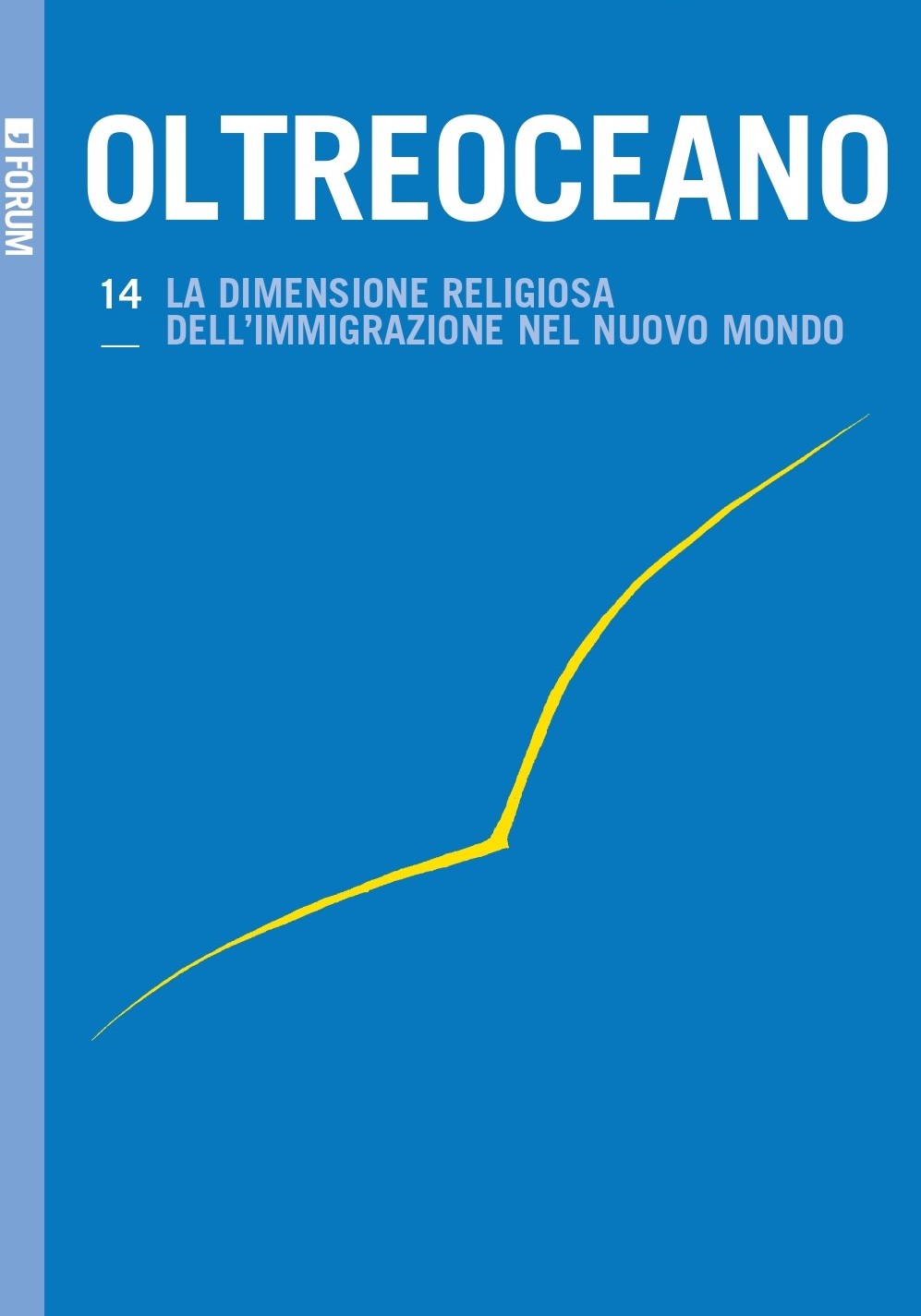La inquietud del origen: el judaísmo en Alejandra Pizarnik
Keywords:
Pizarnik, judaísmo, literaturaAbstract
En los diarios íntimos de Pizarnik se encuentran a menudo reflexiones acerca de su ascendencia judía y la dificultad de conciliar los aportes procedientes de distintos ámbitos con una herencia marcada por la persecución y la desconfianza, que se vuelve soportable solo gracias al legado literario de los escritores judíos, como Kafka.
The anxiety of Origins: Judaism in Alejandra Pizarnik
In diaries, Pizarnik questions about his Jewish ancestry and the difficulty of reconciling the various identities with an inheritance marked by persecution and distrust that becomes sustainable only with the legacy of Jewish writers, as Kafka.
L’inquietudine delle origini: l’ebraismo in Alejandra Pizarnik
Nei diari intimi, Pizarnik s’interroga sulla propria ascendenza ebraica e sulle difficoltà di conciliare i diversi apporti identitari con un’eredità segnata dalla persecuzione e dalla diffidenza che diviene sostenibile solo grazie al patrimonio letterario degli scrittori ebrei, come Kafka.
Downloads
References
Avni, H. (2005): Argentina y las migraciones judías. De la Inquisición al Holocausto y después. Buenos Aires, Jerusalén: Amia, Universidad Hebrea de Jerusalém.
Baumgarten, J. et al. (Eds.) (1994): Mille ans de cultures ashkenazes. Parigi: Liana Levi.
Benarroch, I. (1987): Aproximación a una Historia de los Sefarditas en América Latina (1492-1825). Maguén, 62, pp. 23-25.
Borinsky, A. (2000): Memoria del vacío: una nota personal en torno a la escritura y las raíces judías. Revista Iberoamericana, LXVI, 191, pp. 409-412.
Calimani, R. (2006): Passione e Tragedia. La storia degli ebrei russi. Milano: Mondadori.
Canzano, G. (2017): Le radici ebraiche nel pensiero di Franz Kafka. Chieti: Solfanelli.
Carpi, D. (1961): Il problema ebraico nella politica italiana fra le due guerre mondiali. Rivista di Studi Politici Internazionali, XXVIII, 1, pp. 35-56.
Derrida, J. (1997): El monolingüismo del otro. Buenos Aires: Manantial.
Feierstein, R. (1988): Judaísmo 2000. Buenos Aires: Lugar.
Freschi, M. (1984): Kafka, la scrittura e l’ebraismo. Studi tedeschi, XXVII, 1-2, pp. 37-54.
Gilbert, M. (2008): 9 novembre 1938. La notte dei cristalli. Milano: Corbaccio.
Herzl, T. (2004): El Estado Judío. Buenos Aires: Organización Sionista Argentina.
Johnson, P. (1994): Storia degli ebrei. Dalle origini ad oggi. Milano: Editori Associati.
Kamenszain, T. (2007): La boca del testimonio. Lo que dice la poesía. Buenos Aires: Norma.
Kamenszain, T. a. (2017): Pizarnik, una intimidad que no descansa. Recuperado de https://www. infobae. com/ grandes-
libros/ 2017/09/24/ pizarnik-una-intimidad-que-no-descansa/
Lambroza, S. (1987): The Tsarist Government and the Pogroms of 1903-06. Modern Judaism, VII, 3, pp. 287-296.
López de Pedrique, L. (2006): La Diáspora Sefardí en el Nuevo Mundo. Diálogos culturales. Historia, educación, lengua, religion e interculturalidad, 2, pp. 203-225.
Pinchuk, B. C. (2000): The Shtetl: An Ethnic Town in the Russian Empire. Cahiers du MondeRusse, XVI, 4, pp. 495-504.
Piña, C. (1998): Alejandra Pizarnik: la extranjera. En G. Batticuore (Ed.), Mujeres argentinas. El lado femenino de nuestra historia (pp. 289-303). Buenos Aires: Alfaguara.
Piña, C. (2005): Alejandra Pizarnik. Una biografía. Buenos Aires: Corregidor.
Pizarnik, A. (2002): Los perturbados entre lilas. En A. Pizarnik, Prosa completa (pp. 165-194). Barcelona: Lumen.
Pizarnik, A. (2002): La bucanera de Pernambuco o Hilda la polígrafa. En A. Pizarnik, Prosa completa (pp. 91-171). Barcelona: Lumen.
Pizarnik, A. (2002): Prosa completa. Barcelona: Lumen.
Pizarnik, A. (2014): Diarios. Barcelona: Lumen.
Pizarnik, A. (Archivo 7, carpeta 38): Encuentros (texto inédito incluido en Recits-Prose). En A. Pizarnik, Alejandra Pizarnik Papers. Biblioteca de la Universidad de Princeton (U.S.A.): Departamento de Libros Raros y Colecciones Especiales.
Senkman, L. (1988): Dos dilemas básicos. En L. Senkman, Pluralismo e identidad. Lo judío en la literatura latinoamericana (pp. 47-62). Buenos Aires: Milá.
Scholem, G. (1992): Walter Benjamin. Storia di un’amicizia. Milano: Adelphi.
Smolensky, E. M. & Vigevani Jarach, V. (Eds.) (1999): Tantas voces, una historia. Buenos Aires: Temas.
Sosnowsky, S. (2000): Fronteras en las letras judías-latinoamericanas. Revista Iberoamericana, LXVI, 91, pp. 263-278.
Treves Alcalay, L. (1992): Sefarad. Cinquecento anni di storia, musica e tradizioni degli ebrei spagnoli. Firenze: Giuntina.
Venti, P. (2008): La escritura invisible. El discurso autobiográfico en Alejandra Pizarnik. Barcelona: Anthropos.
Weininger, O. (1994): Ebraismo e odio di sé. Pordenone: Studio Tesi.
Downloads
Published
How to Cite
Issue
Section
License

This work is licensed under a Creative Commons Attribution-NonCommercial-ShareAlike 4.0 International License.
The authors undertake to comply with the following conditions, which are considered accepted at the time of submission of their contributions.
The sending of a text implies that it is unpublished and not submitted to be published elsewhere.
1. If accepted, the author shall confer on the publisher the right to publish and distribute it both in paper form and in the online electronic edition. The published articles will be downloadable and made available in open access.
2. Provided that it correctly indicates that the first publication took place in the journal Oltreoceano. Rivista sulle migrazioni the author has the right to: a) reproduce the article in separate extracts or collected in a volume; b) publish the article on their personal website or teaching site provided that these sites are of a non-commercial nature; c) deposit the article in online archives of a non-commercial nature, linked to the institution they belong to or as part of projects for the non-commercial dissemination and open access of scientific works.
The use of contributions by third parties, for commercial or otherwise unauthorized purposes, is not allowed. The publisher declines all responsibility for the unauthorized use of the material published in the journal.












